Google Antitrust Leaked Documents
User interaction signals
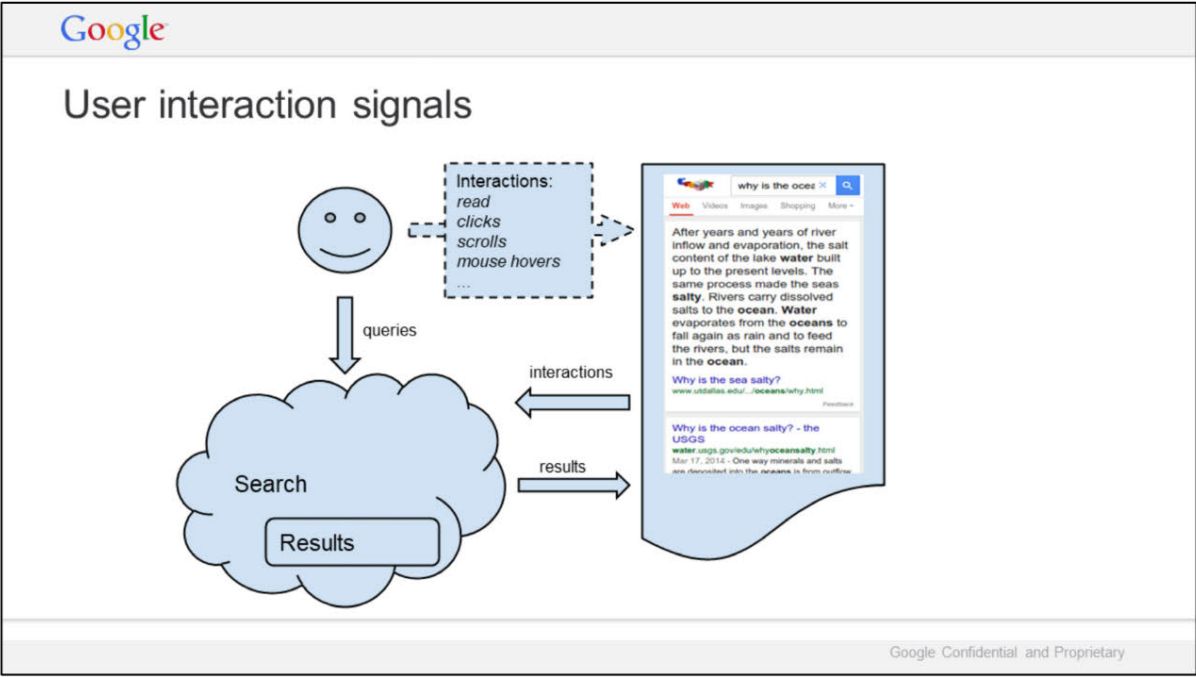
Create relevancy signals out of user read, clicks, scrolls, and mouse hovers.
Not how search works
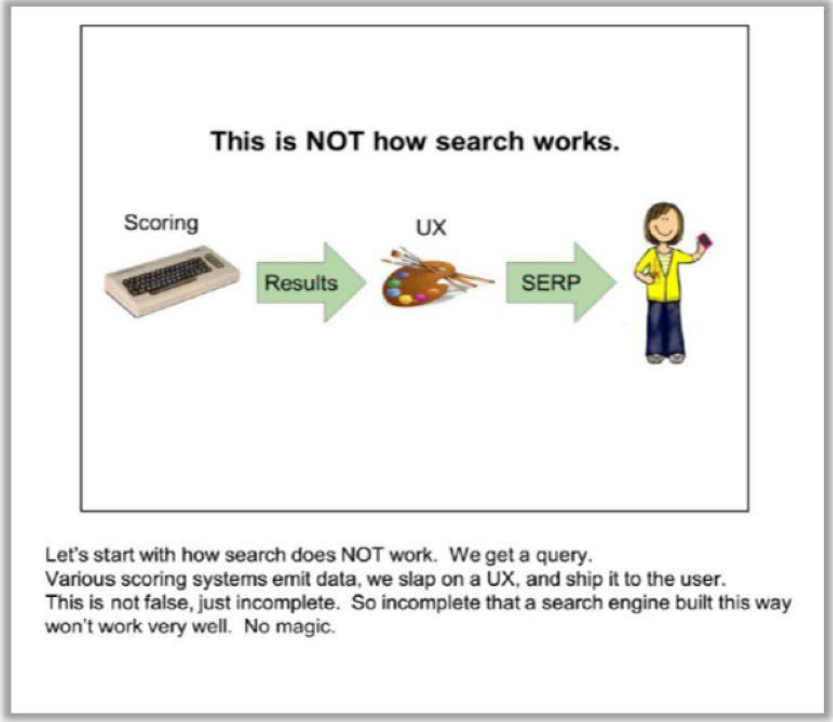
Search does not work by delivering results which match a query that ends at the user. This view of search is incomplete.
How search works
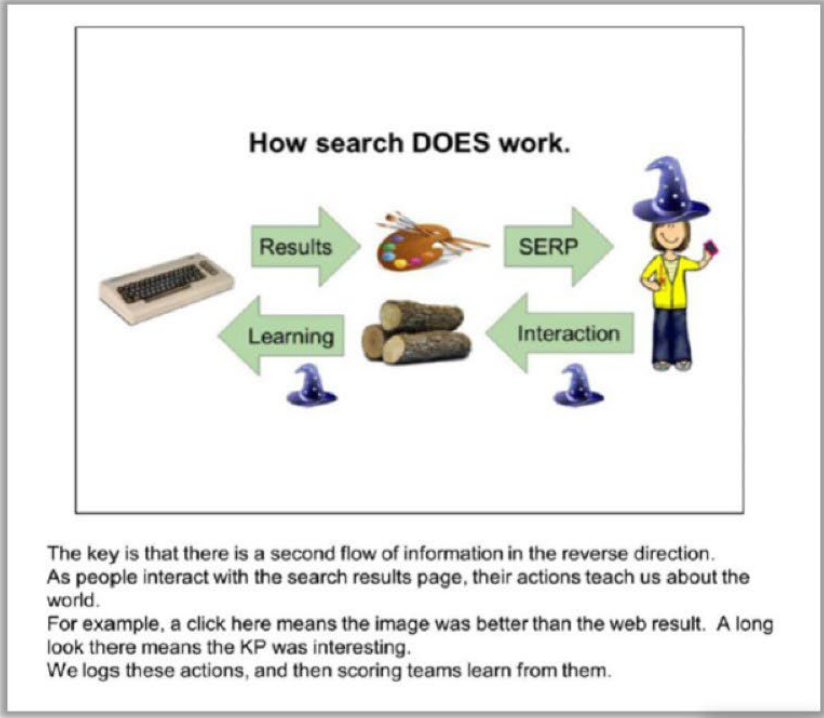
The flow of the engagement metrics from the end user / searcher back to the search engine helps the search engine refine the result set.
Fake document understanding
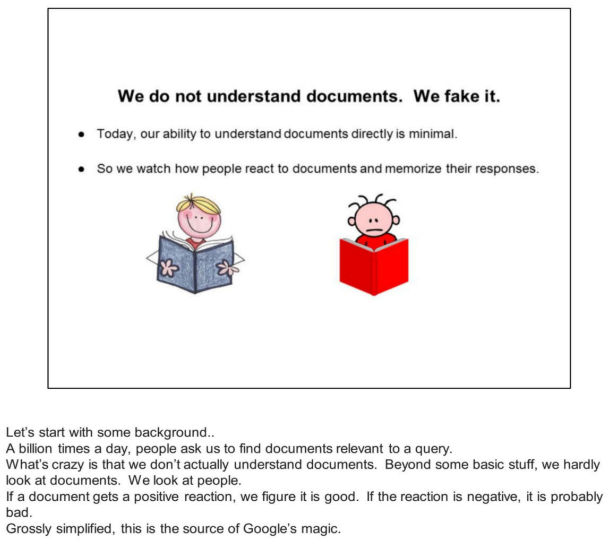
Google looks at the actions of searchers much more than they look at raw documents. If documents elicit a positive reaction from searchers that is proof the document is good. If a document elicits negative reactions then they presume the document is bad.
Google learns from searchers
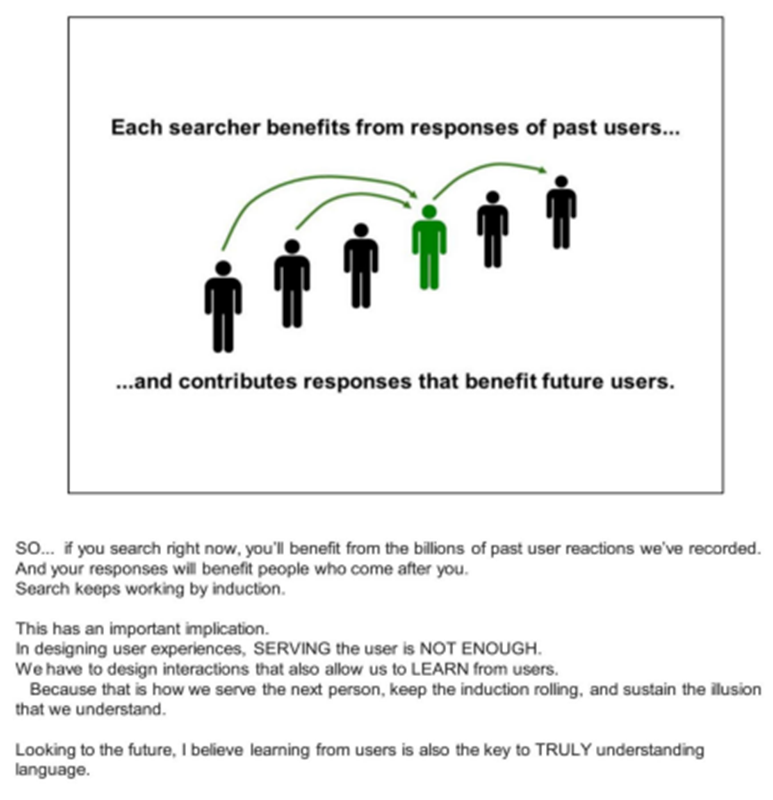
The result set is designed not just to serve the user, but to create an interaction set where Google can learn from the user & incorporate logged user data into influencing the rankings for future searches.
Dialog is the source of the magic
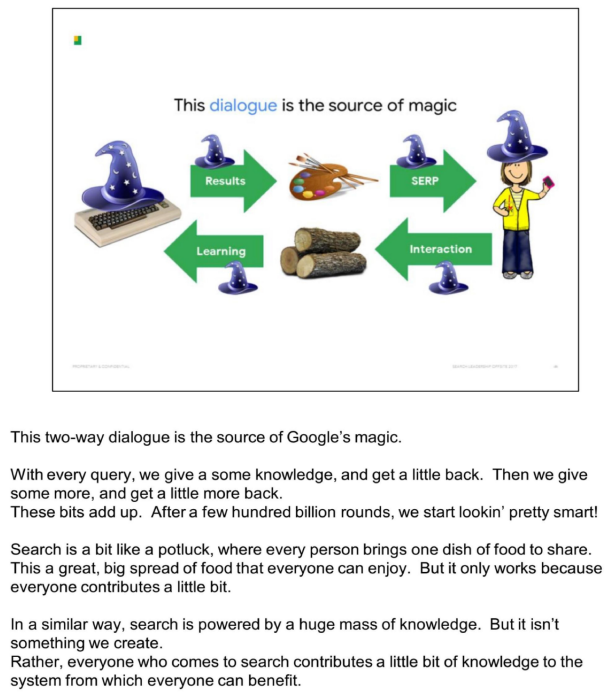
Each user interaction gives Google data to refine their ranking algorithms and make search smarter.
Happy users provide informed user interactions
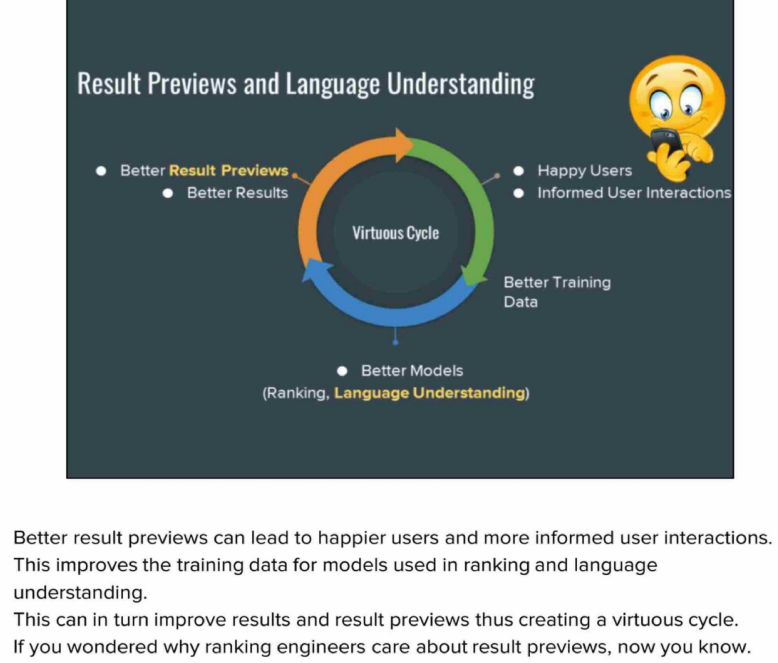
Informed user interactions are part of a virtuous cycle which allows Google to better train their models & understand language patterns, then use that understanding to deliver a more relevant search result set.
Prior user behavior is used as a baseline.
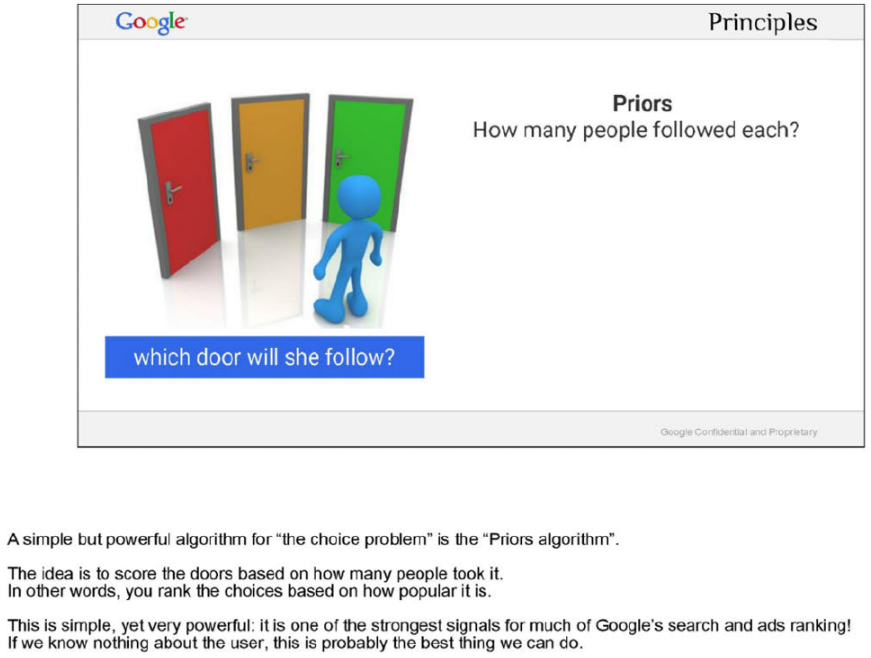
Google is not pushing search personalization anywhere near as hard as they once did (at least not outside of localization) but in the above Google states prior selections is one of Google's strongest ranking for rankings.
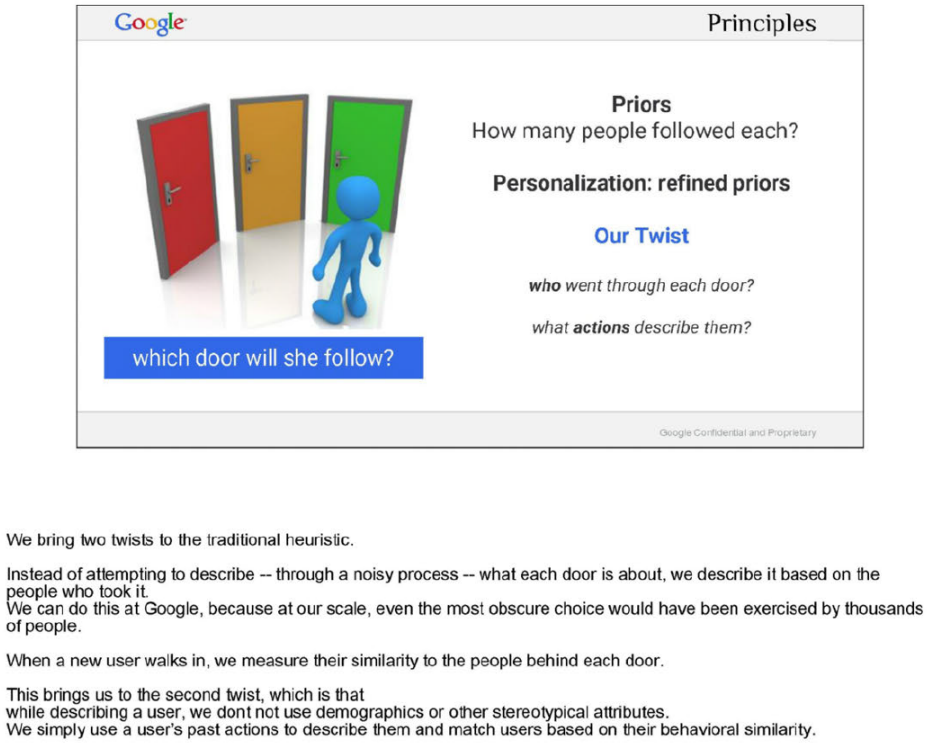
Once again rather than understanding documents directly they can consider the users who chose the documents. Users can be maps based on actions outside of standard demographics so that more like users are given more weight on their user interactions with the result set choices.
Google revenue growth is consistent
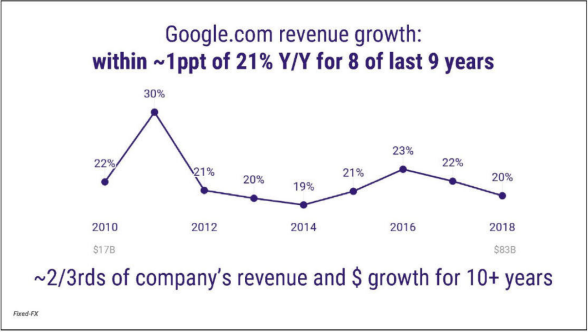
Core Google ad revenue grows much more consistently than any other large media business, growing at 20% to 22% year after year for 8 in 9 years with the one outlier year being 30% growth.
Apple is paid by Google to not compete in search.
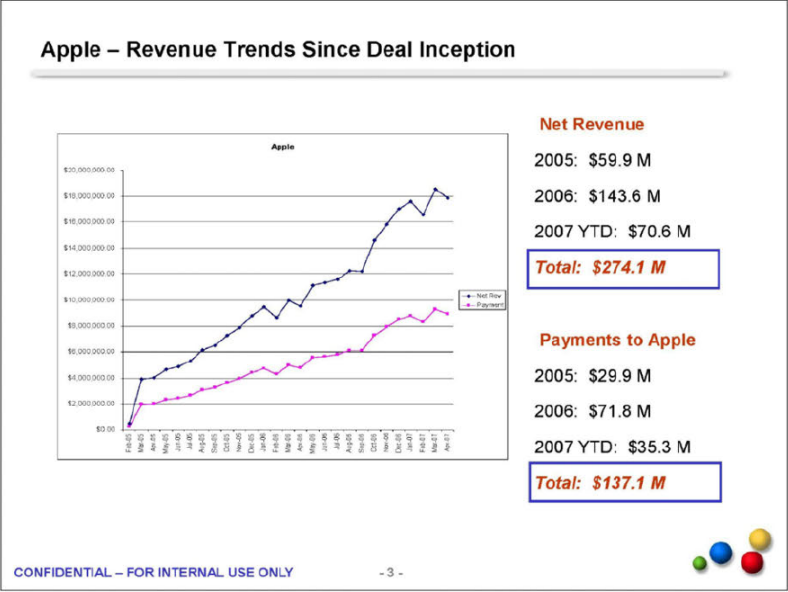
Apple got around a 50% revshare in the mid 2000's on through to the iPhone deal renewal.
Manipulating ad auctions
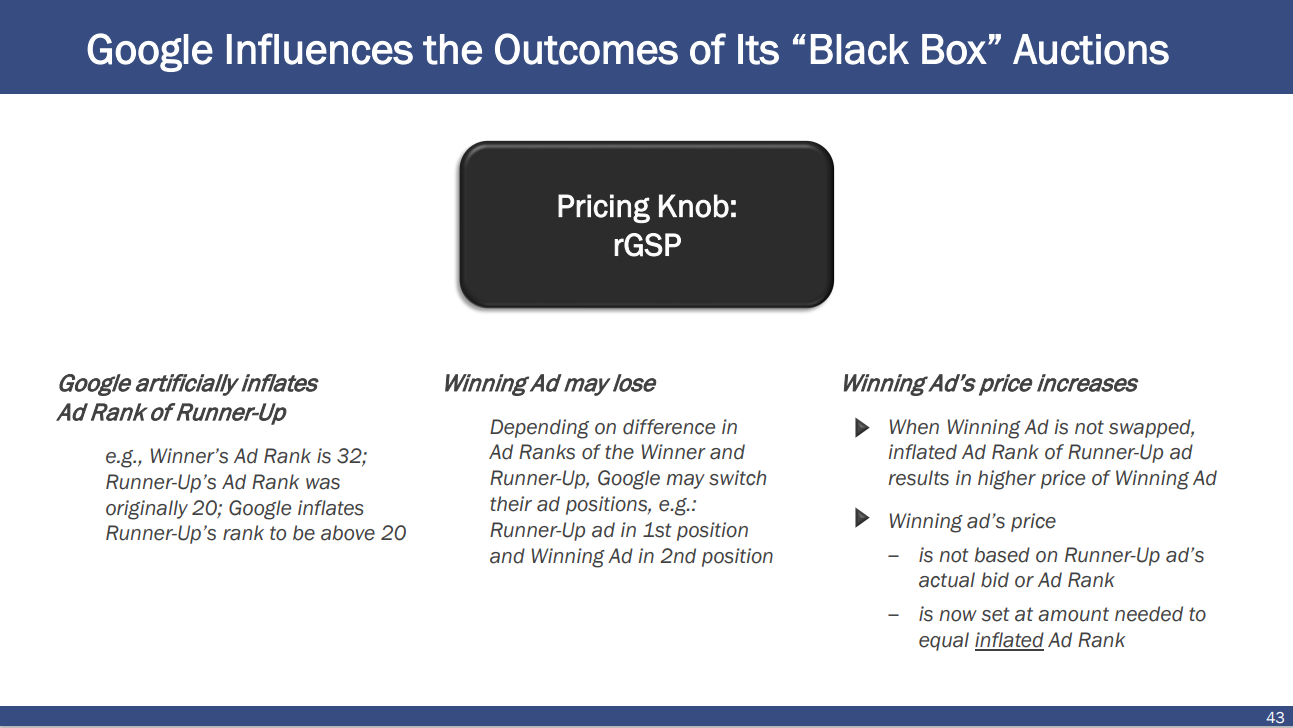
Google artificially inflates ad rank of the runner up in some ad auctions to bleed the auction winner dry. Ad pricing is not based on any sort of honest auction mechanism, but rather has Google looking across at your bids and your reactions to price gouging to keep increasing the ad prices they charge you.
Organics below the fold
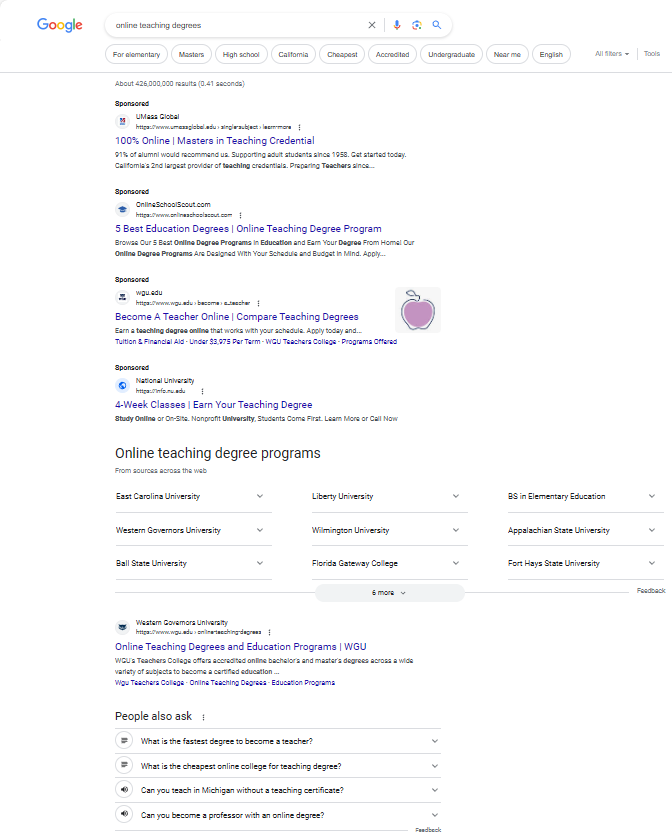
Google not only pushes down the organic result set with 3 or 4 ads above the regular results, but then they can include other selections scraped from across the web in an information-lite format to try to focus attention back upward. Then after users get past a singular organic search result it is time to redirect user attention once again using a "People also ask" box.
Google can further segment user demand via ecommerce website styled filters, though some of the filters offered may be for other websites, in addition to things like size, weight, color, price, and location.
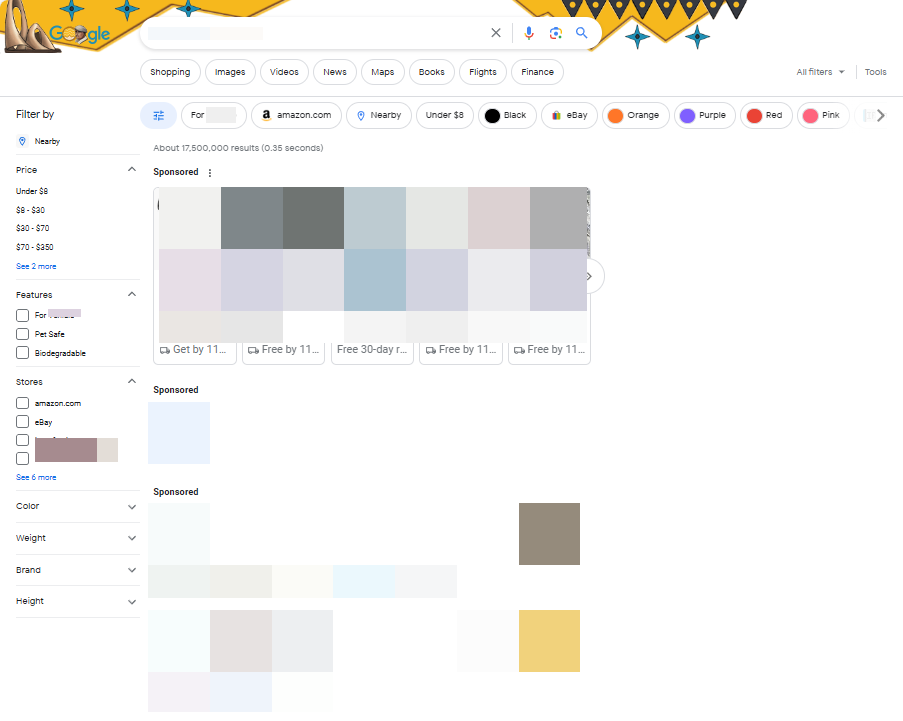
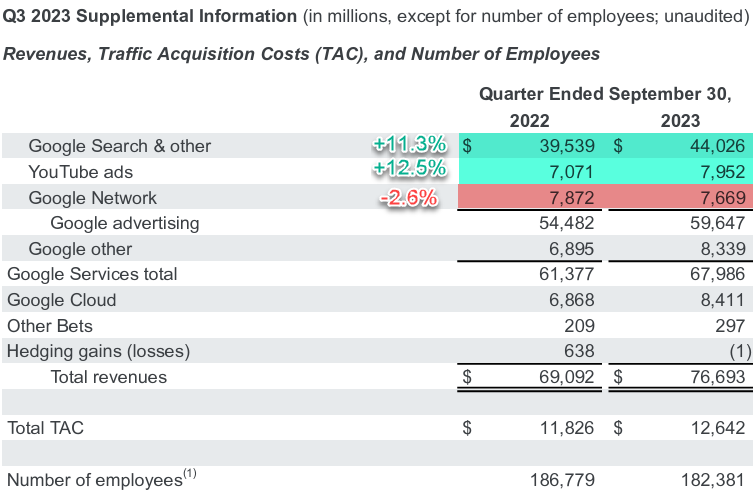
New to the site? Join for Free and get over $300 of free SEO software.



Once you set up your free account you can comment on our blog, and you are eligible to receive our search engine success SEO newsletter.
Already have an account? Login to share your opinions.




Comments
Add new comment